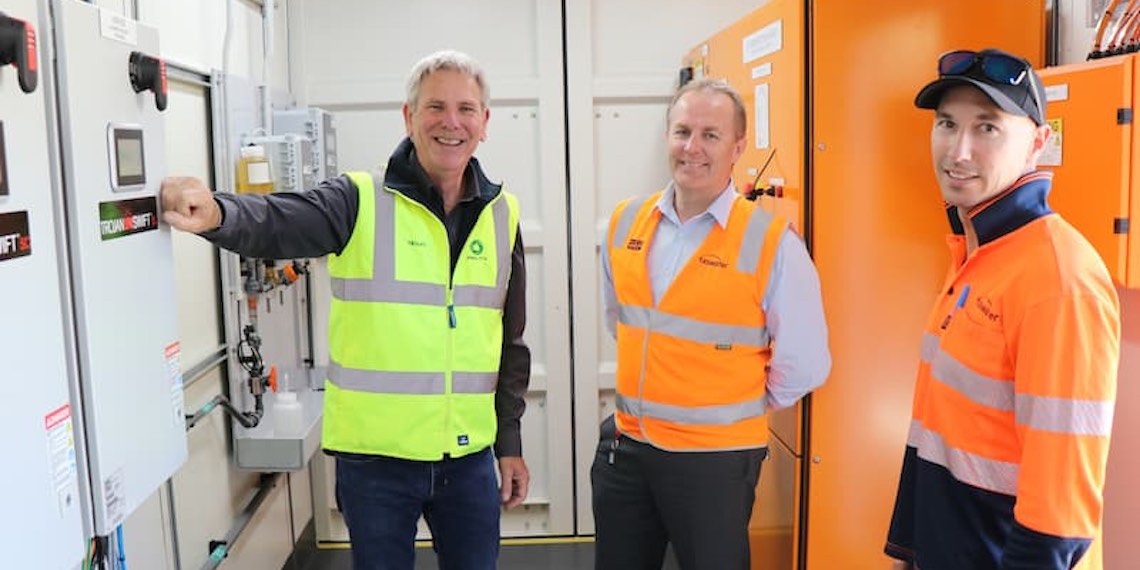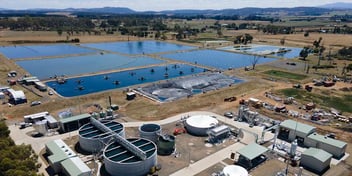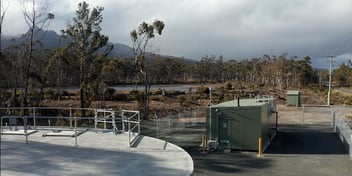TasWater installs UV treatment to provide safer drinking water

Tasmania's Bracknell Water Treatment Plant has received additional water quality safeguards with the installation of an ultraviolet (UV) disinfection treatment facility — the first of nine to be built on sites in TasWater’s network.
Trility is the main contractor carrying out the works, which will help TasWater to meet its commitment to supply Tasmanians with safe drinking water.
TasWater Senior Project Manager Dheeraj Rajan said the UV disinfection adds an additional layer of protection, further reducing the risk of harmful microbes entering the water supply without affecting the taste, colour or odour of the water.
“The treatment will not slow down the water treatment process and just means that water will pass through a UV light as it leaves the treatment plant,” Rajan said.
“These facilities will also be built at Scottsdale, Bridport, Deloraine, Westbury, St Helens, Longford, Glen Huon and Smithton.
“It will further safeguard the quality of water at these small water treatment plants. We are pleased to announce that the facility is now online at Bracknell, with more soon to be complete.”
Shining a light
Rajan said UV disinfection technology is being used to address the presence of certain pathogens.
“Specific pathogens were identified in the raw water that needed to be addressed, specifically Protozoa. This is best treated using UV disinfection technology,” he said.
The project will involve the installation of a containerised plant at five of the nine locations, while the plants are being built within a steel framed building connected to the existing water treatment plant at the remaining sites.
“At each site a large amount of preparation work is being conducted to ensure the existing plants can be fitted out properly with the UV capabilities,” Rajan said.
Housing the systems
Rajan said reparatory works include earthworks, concreting and the erection of a UV containerised system for smaller plants, or a standalone steel framed sheds for bigger plants, to house the UV systems.
“All sites also involved the installation of electrical infrastructure and pipework to tie the new UV system into the existing water treatment plants,” he said.
“In addition, we will also be installing feed pumps and tanks at some of the locations so the new treatment facilities can be connected and operate effectively.
“The existing supervisory control and data acquisition [SCADA] systems at each of the treatment plants have also been updated to include full control and visibility of the newly added UV systems.”
The remaining UV disinfection treatment facilities are expected to be completed this year.


